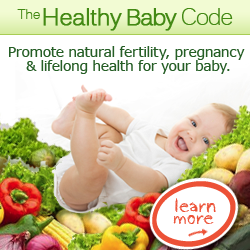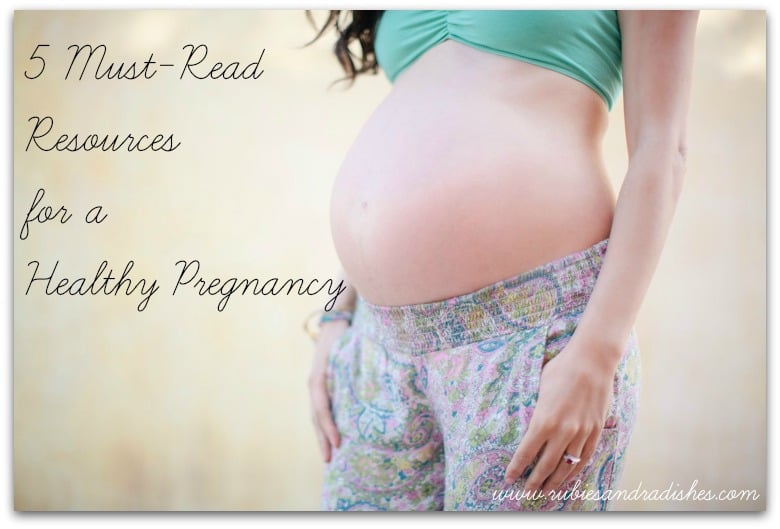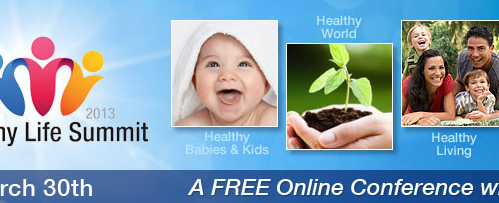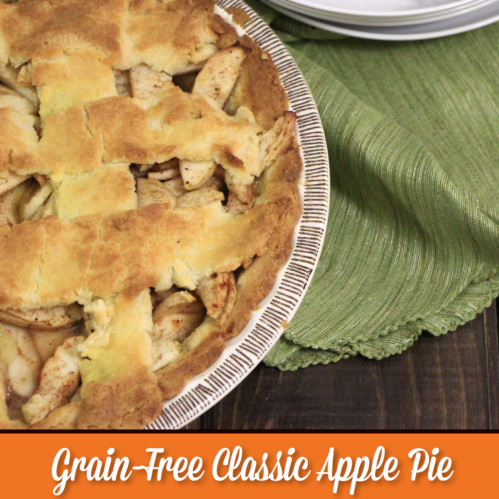I cannot think of a job more important than growing another human. Unfortunately, American culture has become quite careless about preparing for pregnancy and birth of a child. This may sound harsh, but I see it all the time. We don’t take preparing for pregnancy seriously. We have the attitude that anyone should be able to get pregnant, regardless of their nutrition and lifestyle choices. I recognize that sometimes there are deeper fertility issues, but improving nutrition should be our first step before medical interventions.
Women are advised to eat healthy, once they are pregnant, although the period before conception is just as important, if not more important. Once women are pregnant, we are given well-intentioned, yet harmful advice to eat low-fat diets. I had multiple practitioners give me this advice during my pregnancy, not that I followed it! I was eating grass-fed butter by the spoonful! Healthy fats and fat-soluble vitamins are some of the most important nutrients for growing a healthy baby.
According to WAPF, traditional cultures knew how important nutrition is for fertility and pregnancy. Many of them practiced periods of special feeding for men and women before conception and provided the most nutrient-dense foods to women during pregnancy.
Diet can impact the appearance, physical health and mental well-being of a baby. Our babies deserve for us to get educated and eat right. In the last couple of years, some amazing books, ebooks and online resources have been released on this very topic. I want to share some of my favorite resources with you that helped me have a healthy pregnancy!
Beautiful Babies by Kristen Michaelis

This book is not only for real-food newbies though, it is a comprehensive guide to preparing for a healthy pregnancy. Kristen tells us exactly which foods we need to eat and she even gives us recipes and ideas for how to incorporate these foods into our diets.
In addition, she answers the hard questions around food and pregnancy, such as is an occasional glass of wine okay, how about eating raw-cheese or sushi during pregnancy?
This book goes even further and discusses how to prevent varicose veins, it provides tips for natural labor and information on alternative treatments for fertility and pregnancy. In addition, Kristen covers breastfeeding basics, proper diet for a nursing mother, she gives the best choices for parents when breastfeeding is not an option and she even walks new parents through first foods.
This book is a fantastic first read for anyone that plans to get pregnant ever. I have started gifting this book to friends and family as an engagement present! The earlier you start preparing your body for pregnancy, the better!
Primal Moms Look Good Naked by Peggy Emch

I appreciate the no-nonsense, matter of fact approach, which Peggy writes in. In this book, she goes far deeper than nutrition and lifestyle choices to improve fertility and have a healthy pregnancy. You will find that information here, but you will also find much more on the science of women’s health.
Where this book really shines is that it addresses the seemingly physical concerns women have. We have accepted things like stretch marks, cellulite and varicose veins as rights of passage into womanhood and motherhood. Peggy examines the science and explains to the reader that these bodily changes are not only physical responses. They are often a result of internal nutrient deficiencies and with proper diet and care, they can be avoided or greatly improved.
Primal Moms Look Good Naked goes even further and covers issues of the postpartum period such as abdominal splitting, sagging breasts, vaginal dryness and protruding belly. Peggy explains why these things occur and what we can do about them.
Primal Moms is a very empowering book. From reading this book, we learn that we don’t have to accept our fate when it comes to physical changes like stretch marks and baby weight. Peggy teaches us how to take charge of our health and look good during and after pregnancy!
Nourished Baby by Heather Dessinger

Did you know that babies inherently have a leaky gut? I found this very interesting! Heather explains that this is a good thing “because it allows the antibodies from breast milk to flow freely into the bloodstream, providing baby with natural immunities to bacteria and viruses”. However, we do want their gut to be sealed when we start introducing solids. In her ebook, Heather walks us through the most optimal first foods for babies.
Nourished Baby is a comprehensive and easy to follow guide for preparing for a healthy pregnancy and raising healthy children. Heather discusses the role of a healthy gut and teaches us how to improve our gut bacteria. In addition, she writes about the importance of diet during breastfeeding and she teaches us how to eat optimally, so our babies get the most nutritious breast milk.
This book also has a comprehensive recipe section filled with delicious meals the entire family can enjoy, babies included! My favorite part of the recipe section is that Heather indicates at which age you can introduce which recipes. There is even a section on how to help transition older kids that are already used to junk food!
I highly recommend this book for preparing for pregnancy and nourishing babies. It has everything you need in a simple to follow manner.
The Healthy Baby Code by Chris Kresser

Chris’ program is set up as video modules, but you can also download the audio files and listen to them on your commute to work or your daily walk.
What I love about this program is that since it is set up as video modules, you can do the program with your partner. In our case, my husband eats real-food, but he isn’t obsessed like me, so he is not always aware of all the underlying health reasons. Although, I must say that I am quite impressed when I hear him telling other people about inflammation, omega-3s and grass-fed meats. I guess he has been listening to me ramble for the last 5 years!
Anyway, it was fun for us to do this program together and it helped Brooke get up to speed on eating for pregnancy, so he was more aware and helpful when it came to diet and nutrition.
The Nourishing Traditions Book of Baby & Child Care

WAPF has been leading the movement in pregnancy, fertility and baby nutrition. They have done much of the research and education on this topic. I am grateful for all that I have learned for free from their website. Much like their website, this book is PACKED with information.
The Baby & Child Care book goes deep into nutrition and Dr. Price’s work on traditional cultures. If you want a more in depth understand of these topics, as they relate to fertility, pregnancy and baby’s health then this is your book.
In addition, this book covers many topics related to raising children. Fallon and Cowan have dedicated several chapters to childhood illness, disease, allergies, asthma, neurological disorders, etc.
I think this book is a fantastic resource guide for parents. I have referred to it several times for things like fever and teething pain.
I am beyond grateful for discovering Paleo, then WAPF far before I became pregnant. I credit the work of these two movements for my happy and healthy baby. Regardless of if you are eating a standard American diet or if you have been a real-foodie for some time, if you plan to have a baby anytime (near or far future), I recommend picking up one of these fantastic resources to start learning about nutrition for fertility and pregnancy.
******************************
*****Some links in this post are affiliate links, including Amazon links. I only recommend products that I use personally and wholeheartedly believe to be valuable. If you purchase a product via an affiliate link, your cost will remain the same but Rubies & Radishes will receive a small commission. This helps cover some of the costs of maintaining this site. Thank you for your support! Disclosure: cmp.ly/4 and cmp.ly/5*****




Just curious – when you are given well-intentioned advice to eat a low-fat diet, especially when the person you’re speaking to is in the medical field, what do you say? I’ve tried having this conversation with my parents, who have been told for so long that saturated fat is so bad for you, that nothing convinces them; conversations with friends are a little easier and more flexible (I usually say something like, “I’ve been doing some reading and it seems like sat fats aren’t as bad for you as we once thought….” I can’t imagine broaching the subject with a doctor though, and just smile and nod. How have you approached this?
Hi Emilie! This is a fantastic question. I have a hard time with this topic and medical professional too. I say okay and smile and nod and ignore the advice. In my experience, most medical professionals are not going to listen to their patient, especially when it is such a controversial topic. I don’t really try to convince them otherwise, but maybe this is not the best approach.
Like you, with friends and family I say something like, “the latest research actually shows that saturated fat is important to our health and doesn’t cause heart disease, and it’s essential for neurological health. Would you like me to forward you an article about it?” …But, I am really annoying and talk about this stuff so much, that now some of my friends are on board. lol … As far as your parents, do they like to read? Maybe if you give them a few articles to read that might help?
Emilie,
I’m a nurse practitioner, who, sadly, back in college days, believed the vegetarian/saturated fat lies. Thankfully, now I know better!!! If you come across health care professionals who are trying to coerce you to eating a low-fat, no saturated fat/cholesterol diet, ask if they know what breast milk is composed of?? (over 55% fat, mostly saturated fat and high in cholesterol- brain matter is mostly fat, and cholesterol is essential for the nervous system development of a baby!) I kindly point out to fellow nurses/doctors that studies now show that increased intake of saturated fats shows a lower risk of heart disease & cancer. Also, point out that the way we ate in the early 1900’s (raw milk, eggs, butter, fresh fruits, vegetables, etc) resulted in very little cancer & obesity. It wasn’t until processed carbs and toxic vegetable oils were introduced that heart disease and cancer became rampant. 🙂 Don’t give up! We CAN change the mainstream to knowing the truth about nutrition!!
So glad there are people like you in the medical world! Makes me hopeful for change in the near future!